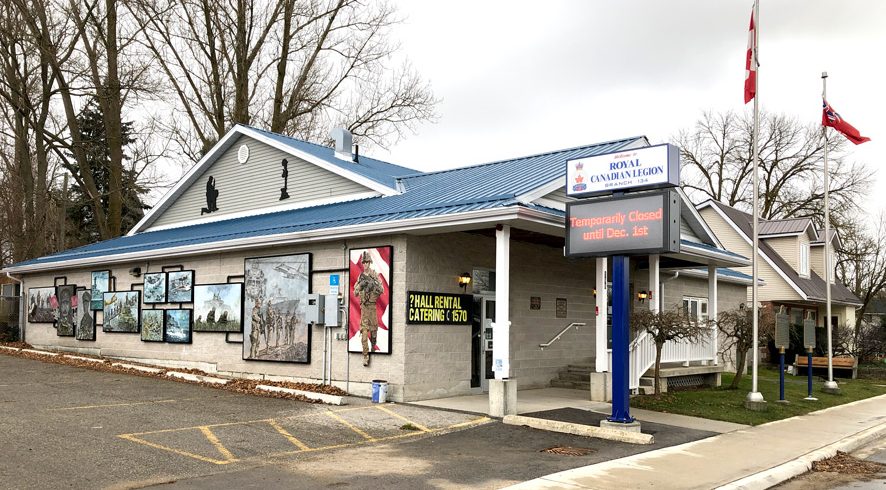WELLINGTON COUNTY – For more than 12 years, the Royal Canadian Legion’s Ontario Command has been serving veterans facing hard times through its operation “Leave the Streets Behind” program.
Initiated in 2009, the program aims to end homelessness among veterans.
Once the Legion identifies a homeless veteran, it determines the immediate needs of the veteran and quickly takes action, providing food, clothing, shelter and other assistance such as help with rent payments, covering dental work, and providing gift cards to veterans in need.
For over a decade, the program has assisted more than 662 homeless veterans in finding permanent housing.
More than 980 homeless veterans have been identified in 184 municipalities across the province since the program’s launch.
Ontario Command first vice president Derek Moore said the Legion is now wanting to build on the program’s success and expand by forming regional committees across the province, including one in Wellington County and one in Guelph.
Regional committees have already been formed in Toronto, Kingston, Ottawa, Niagara Falls and London.
“The program has been so successful, and we want to expand on that,” Moore said.
“We have 393 branches in Ontario, and we need to get all of those branches involved. Hence, there is a need for regional committees,” he explained.

DEREK MOORE
Moore, who lives in Mount Forest, said he hopes to have a regional committee including one representative from each of the Legion’s seven branches within Wellington County.
A newly formed committee would ideally work with the county, as well as the police, Moore said, to identify ways to help veterans in need of support.
“The idea of the committee is to establish what services are available for the homeless; not even necessarily just for homeless veterans,” he said.
“Then, we’ll touch base with the OPP and let them know we’re in the community and see what we can do if they come across a homeless veteran.”
Moore said the program prides itself on being able to provide accommodation within 24 to 48 hours.
“The first thing is to get them off the street. This is why we need the committees,” said Moore.
“We need these committees to go around in their local communities, and see what’s available, if anything is available, whether that be a motel room for the night.
“We don’t set them up to fail. We get any available social services involved, we try to find them employment, and then we try to find them permanent housing.”
The initiative also works proactively to assist veterans who are at risk of becoming homeless.
“A lot of the time we will assist with a couple of rent payments if they’re going through a rough spell,” Moore said.
He noted that although the need to assist homeless veterans in the county is not as great as it is in larger cities, the Legion has already identified multiple homeless veterans in the communities.
“The program is working, but we need to expand it. We can do better,” he said.




